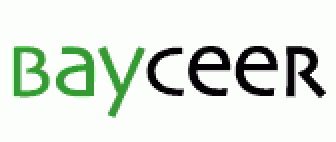Vortragsreihe Ökologie und Umweltforschung SS 2011
Prof. Dr. Martin Beniston
Head of the Institute for Environmental Sciences, University of Geneva, Switzerland (Homepage)
Donnerstag, 05.05.2011 16:15-17:45, H6
Exploring shifts in water availability and use in the Alps in a warmer climate
Eingeladen durch GCE
The European Alps are one region of the world where climate-driven changes are already perceptible, as exemplified by the general retreat of mountain glaciers over past decades. Temperatures have risen by up to 2°C since 1900 particularly at high elevations, a rate that is roughly three times the global-average 20th century warming. Regional climate models suggest that by 2100, winters in Switzerland may warm by 3-5°C and summers by 6-7°C according to greenhouse-gas emissions scenarios, while precipitation is projected to increase in winter and sharply decrease in summer. The impacts of these levels of climatic change will affect both the natural environment and a number of economic activities. Alpine glaciers may lose between 50 and 90% of their current volume and the average snowline will rise by 150 m for each degree of warming. Hydrological systems will respond in quantity and seasonality to changing precipitation patterns and to the timing of snow-melt in the Alps, with a greater risk of flooding during the spring and droughts in summer and fall. The direct and indirect impacts of a warming climate will affect key economic sectors such as tourism, hydropower, agriculture and the insurance industry that will be confronted to more frequent natural disasters. This talk will thus provide an overview of the current state of knowledge on climatic change and its impacts on the Alpine world, based in particular on the results of the EU-FP7 “ACQWA” project currently coordinated by the speaker.
Weitere Informationen:
Das BayCEER-Kolloquium dient als interdisziplinäre Plattform für Studierende, Wissenschaftler*innen und Interessierte: während der Vorlesungszeit geben Gäste und Mitglieder des BayCEER Einblicke in ihre Forschung, die im Hörsaal und in lockerer Atmosphäre beim Postkolloquiums diskutiert werden.
- Programm Kolloquium Sommer 2025 (PDF)
- Kolloquiums-Newsletter für Interessierte
- Hinweise für Vortragende
- Hinweise für Einladende (PDF)
- Terminplanung kommende Semester und Vortragsarchiv
Das BayCEER-Kolloquium dient als interdisziplinäre Plattform für Studierende, Wissenschaftler*innen und Interessierte: während der Vorlesungszeit geben Gäste und Mitglieder des BayCEER Einblicke in ihre Forschung, die im Hörsaal und in lockerer Atmosphäre beim Postkolloquiums diskutiert werden.
- Programm Kolloquium Sommer 2025 (PDF)
- Kolloquiums-Newsletter für Interessierte
- Hinweise für Vortragende
- Hinweise für Einladende (PDF)
- Terminplanung kommende Semester und Vortragsarchiv

